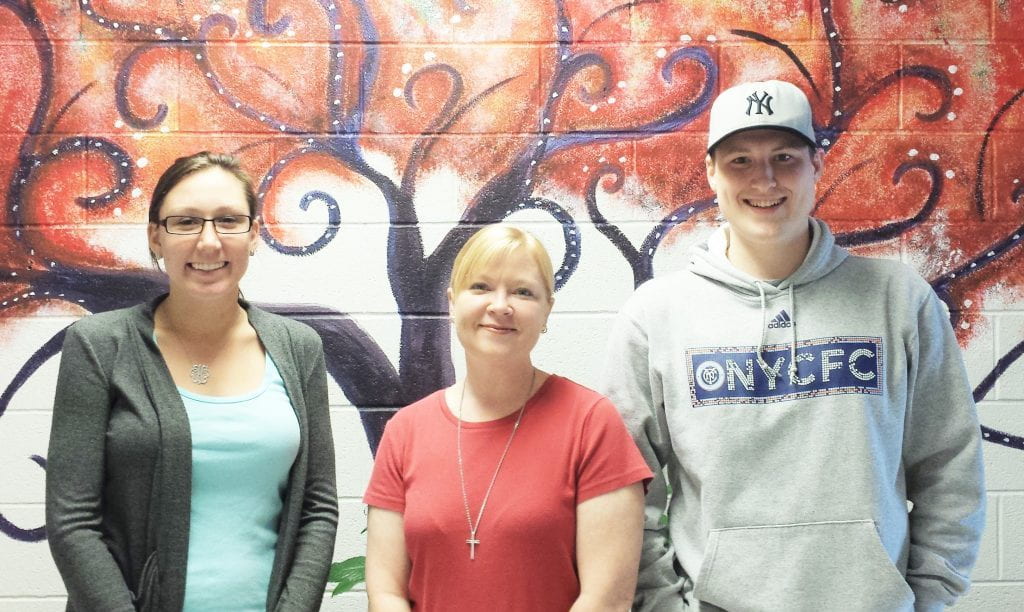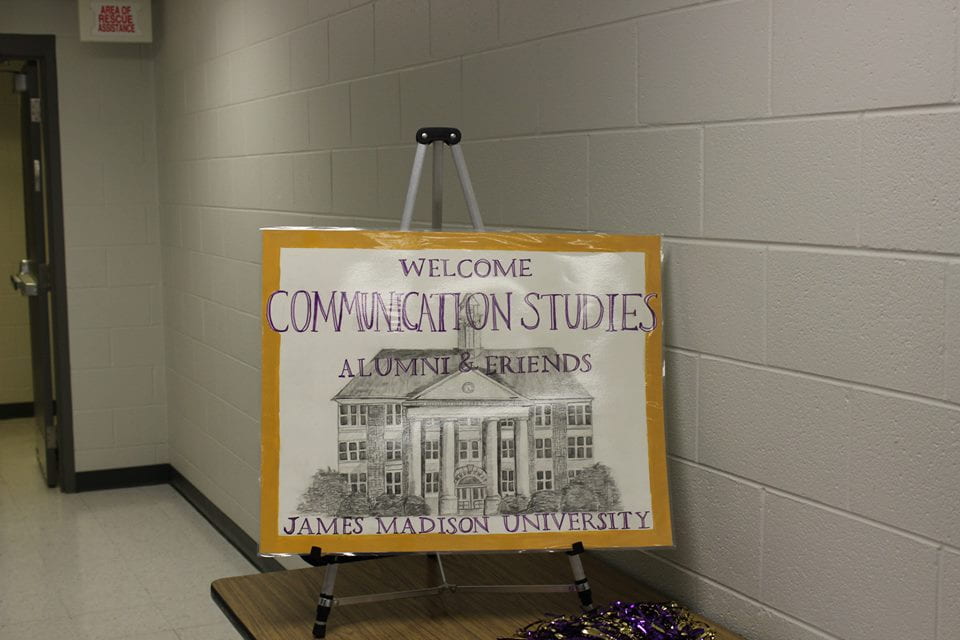Beginning in August 2014, the School of Communications was privileged to have four new faculty members join the James Madison University team. Now, with one semester under their belts and another in full swing, they were willing to open up and share a little bit about themselves and their experience so far as a JMU Duke.
 Lindsey Harvell: Dr. Harvell was born and raised in Kansas, and went on to receive her undergraduate degree from The University of Kansas in Communication Studies. She then went to Wichita State University, where she completed her master’s degree in Political Communication. She completed her Doctorate in Social Influence from the University of Oklahoma.
Lindsey Harvell: Dr. Harvell was born and raised in Kansas, and went on to receive her undergraduate degree from The University of Kansas in Communication Studies. She then went to Wichita State University, where she completed her master’s degree in Political Communication. She completed her Doctorate in Social Influence from the University of Oklahoma.
Dr. Harvell’s main area of research centers on using existential awareness in creating effective persuasive messaging. As part of the advocacy faculty, she is able to use her research to aid faculty and students in developing effective messaging that utilizes existential awareness as the focus of the communication.
This semester, Dr. Harvell is teaching a graduate quantitative communication research methods course (SCOM 683) in addition to the introduction to communication theory class (SCOM 240/241) for undergrads. When asked about her time here at JMU, she stated, “The transition to JMU has been flawless. Coming to work every day with colleagues and students that I adore is truly a gift.” She loves the atmosphere and the overall happiness she feels coming into work each day.
 Yeonsoo Kim: Dr. Kim was born and raised in Seoul, South Korea. She stayed there to complete her bachelor’s and master’s degree in Mass Communication with an emphasis on Journalism at Ewah Women’s University. She then moved to the United States and received her master’s and Ph.D. in Mass Communication with an emphasis on Public Relations at the University of Florida.
Yeonsoo Kim: Dr. Kim was born and raised in Seoul, South Korea. She stayed there to complete her bachelor’s and master’s degree in Mass Communication with an emphasis on Journalism at Ewah Women’s University. She then moved to the United States and received her master’s and Ph.D. in Mass Communication with an emphasis on Public Relations at the University of Florida.
In terms of research, Dr. Kim’s key areas involve tactical corporate social responsibility (CSR) programs, effects of CSR communication strategies, and reputation management. Her current work studies the impact of CSR program “fit” for organizations considering their reputation and how to present its purposes to stakeholders.
For this semester, Dr. Kim is teaching survey research methods (SCOM 386), public relations campaigns (SCOM 461) and a variety of other public relations courses. She’s truly enjoyed being at JMU and wrote, “Before joining to JMU, I already had great respect for JMU’s reputation as a leading communications program. So far I’ve enjoyed every single minute here.” She views it as a place for her to grow and dedicate her time over a long period.
 Jennifer Mease: Dr. Mease is originally from Charlotte, North Carolina, however she attended Villanova University where she received her bachelors degree. She then went on to Arizona State to complete her masters, and finally completed her Ph.D. at the University of North Carolina at Chapel Hill. She taught Texas A&M University and was in the consulting industry before moving to Harrisonburg to teach at JMU.
Jennifer Mease: Dr. Mease is originally from Charlotte, North Carolina, however she attended Villanova University where she received her bachelors degree. She then went on to Arizona State to complete her masters, and finally completed her Ph.D. at the University of North Carolina at Chapel Hill. She taught Texas A&M University and was in the consulting industry before moving to Harrisonburg to teach at JMU.
Dr. Mease educates in the area of organizational communication. Specifically, she studies how social biases can become engrained into various organization structures unknowingly. She also investigates how to change these social biases that occur.
Here at JMU, she currently teaches the introduction to communication theory class (SCOM 240/241) and organization communication (SCOM 350). She has found JMU and living in Harrisonburg to be, “great for raising my family” and enjoys working with the SCOM faculty.
 Christi Saindon: Professor Saindon spent most of her life growing up and going to school in Texas. She attended the University of Texas at Arlington for her bachelor’s degree in Oral Communication, and received her masters in Communication Studies from the University of North Texas. She is completing her doctorate at Southern Illinois University in Communication Studies as well.
Christi Saindon: Professor Saindon spent most of her life growing up and going to school in Texas. She attended the University of Texas at Arlington for her bachelor’s degree in Oral Communication, and received her masters in Communication Studies from the University of North Texas. She is completing her doctorate at Southern Illinois University in Communication Studies as well.
Professor Saindon has a wide range of interests when it comes to research, and her current research focuses on the autoethnographic and ethnographic investigation of the silent behaviors of women and girls in the classroom. Other areas of interest for her include analysis of mediated messages, communication pedagogy, and fat studies.
This semester, Professor Saindon is teaching fundamentals of human communication (GCOM 123), persuasion (SCOM 341) and communication and gender (SCOM/WMST 348). While only having taught at JMU for a short time, she stated that, “I’m fairly convinced this is the happiest place on earth”, and appreciates the dedication that she’s seen in her students.
Thank you to Dr. Harvell, Dr. Kim, Dr. Mease and Professor Saindon for your willingness to share you experiences thus far at JMU. We wish you the best in your career!



 Lindsey Harvell
Lindsey Harvell





